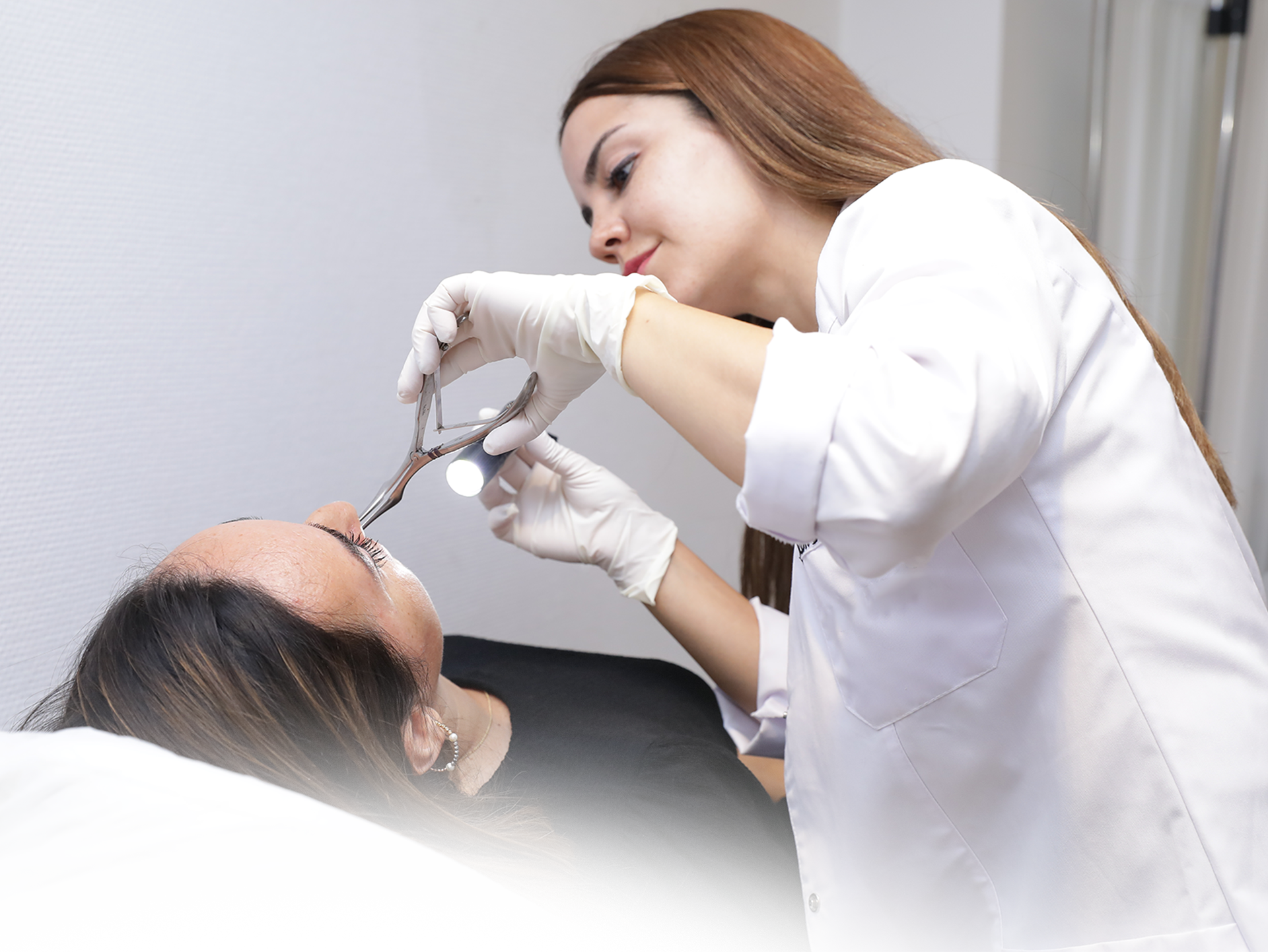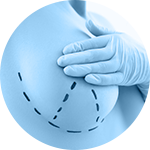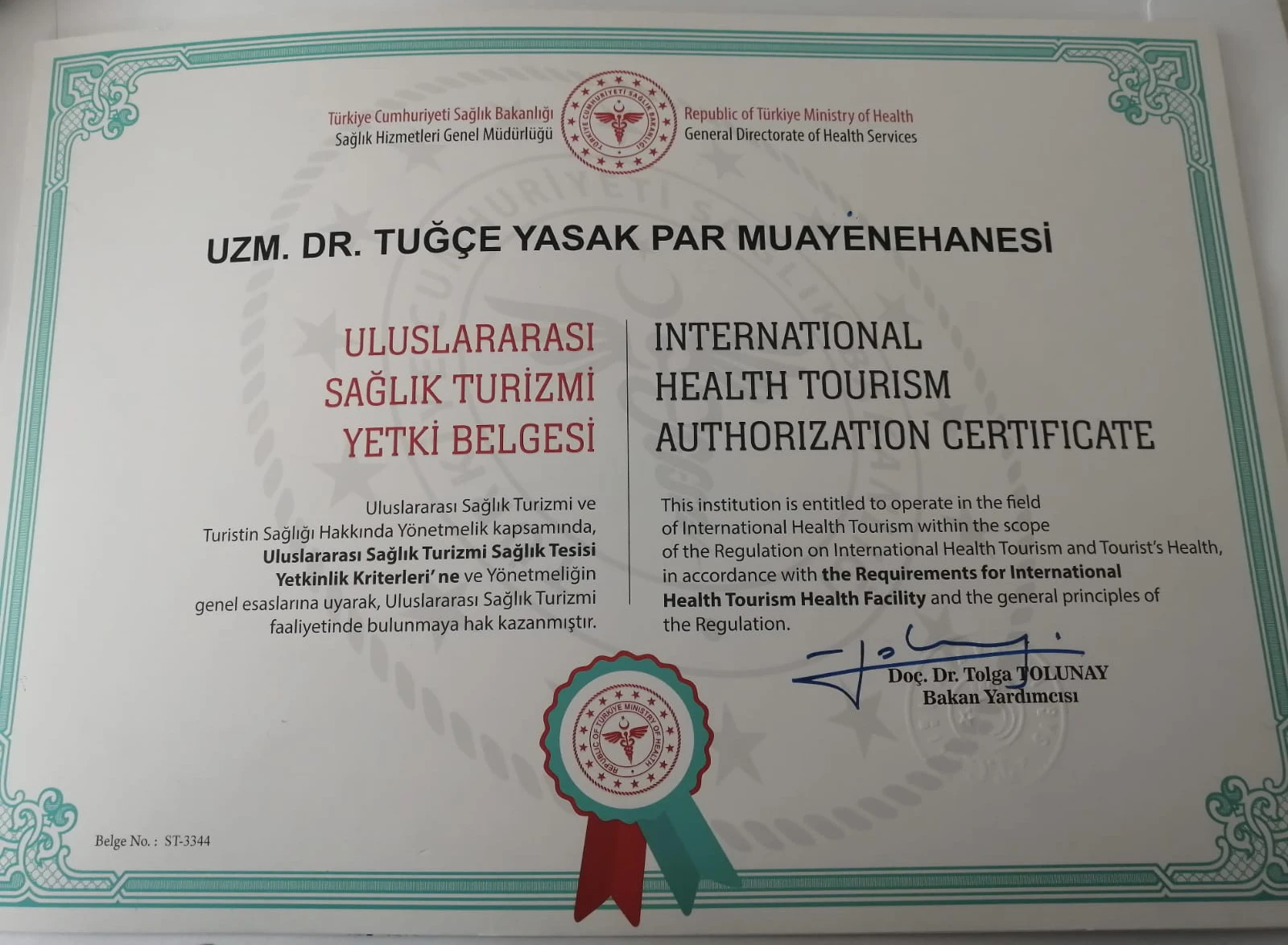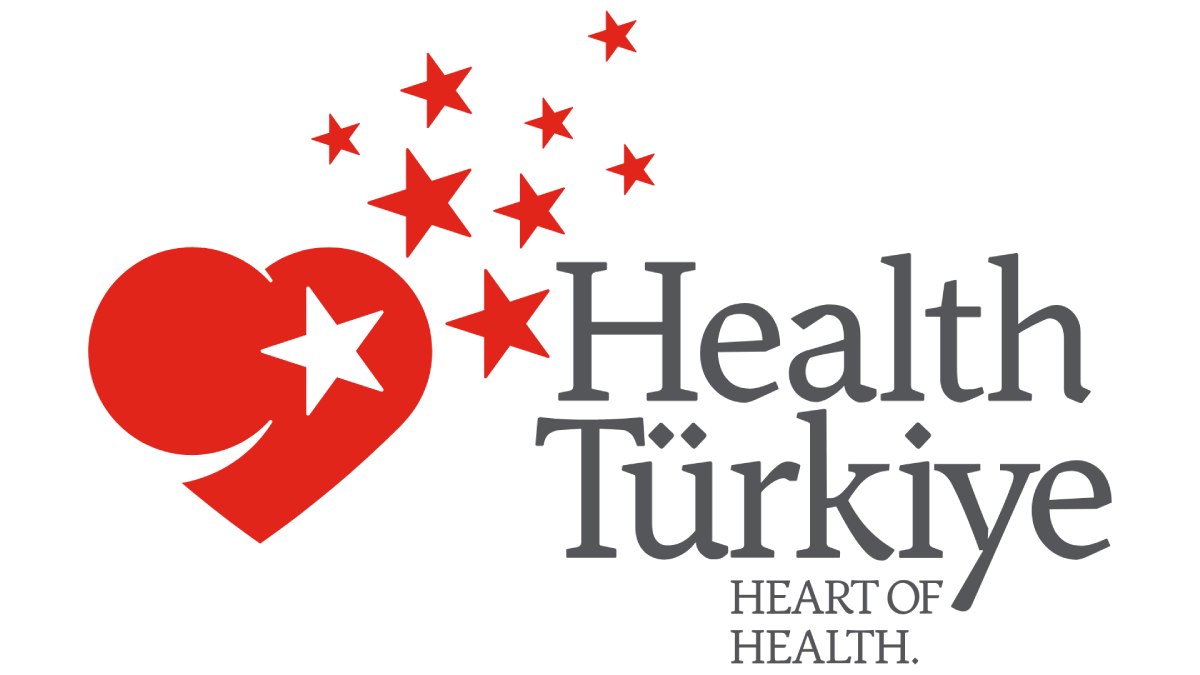

About me
MD Tuğce Yasak
I was born in Manisa in 1989. After completing my primary, secondary, and high school education in Manisa, I started my medical education at Istanbul University Cerrahpaşa Faculty of Medicine in 2006. After six years of medical education, I began my compulsory service at Istanbul Sultangazi Community Health Center in 2012. In the same year, I was admitted to the Department of Plastic, Reconstructive, and Aesthetic Surgery at Okmeydanı Training and Research Hospital through the Medical Specialty Examination.




Communication
Contact us
You can contact us now, make an appointment or get information about your questions.













